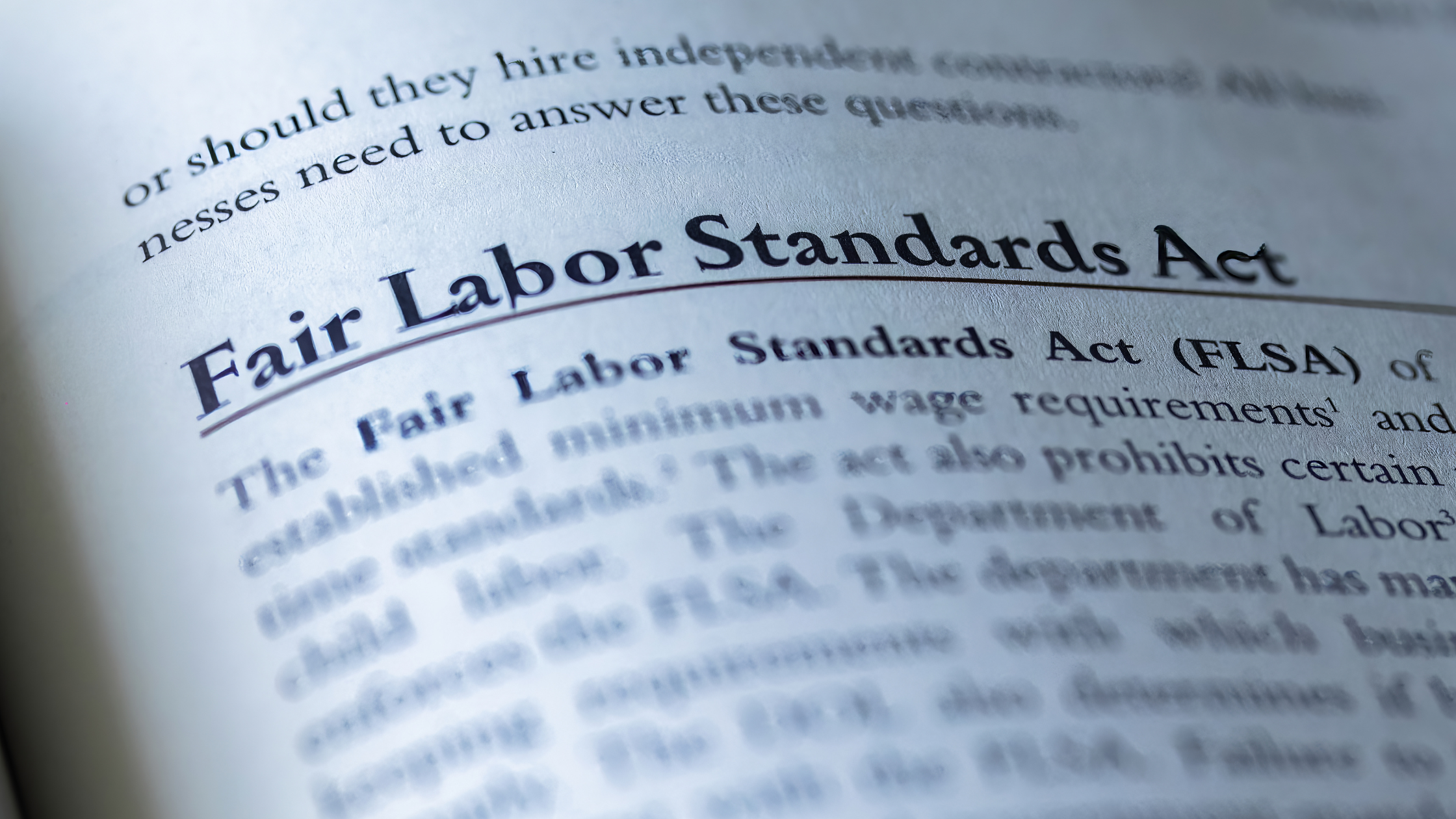The Fair Labor Standards Act (FLSA) is legislation that influences labor practices in the United States. Enacted in 1938, the FLSA establishes standards for fair labor practices and protections for workers.
Keep reading to explore the key aspects of the FLSA, its historical background, and its impact on both employers and employees.
History of the FLSA
The Fair Labor Standards Act (FLSA) was established to ensure fair wages and reasonable working hours. Before its enactment, the American labor market suffered from widespread exploitation, including excessive work hours, inadequate wages, and unsafe conditions, which were worsened by the economic turmoil of the Great Depression. President Franklin D. Roosevelt's New Deal laid the groundwork for the FLSA, with key steps like the National Industrial Recovery Act of 1933.
Passed on June 25, 1938, the FLSA implemented a federal minimum wage, established a standard 40-hour workweek with overtime compensation, and put an end to exploitative child labor practices. This act significantly improved economic stability, living standards, and workplace equity.
The FLSA has been amended over the years to address issues like equal pay and anti-discrimination, remaining a crucial framework for protecting American workers' rights.
Core Objectives of the FLSA
Minimum Wage
One of the core objectives of the Fair Labor Standards Act (FLSA) is to establish a federal minimum wage, which serves to ensure that all covered workers receive a basic level of compensation.
This is essential for maintaining a minimum standard of living, providing a safety net for low-income workers and helping to reduce poverty and income inequality. By setting a baseline for earnings, the minimum wage prevents employers from paying unreasonably low wages, ensuring that even those in low-skilled or entry-level positions can earn enough to cover their basic needs such as food, housing, and healthcare.
Over time, the minimum wage has been adjusted to reflect changes in the cost of living, which is crucial for preserving the purchasing power of minimum wage earners amidst rising prices from inflation. These adjustments help ensure that workers can meet their essential needs despite inflation.
While the federal minimum wage sets a nationwide standard, some states implement higher minimum wages. Curious to see a state by state breakdown of minimum wages in 2024? Click here.
Overtime Pay
Under the Fair Labor Standards Act (FLSA), nonexempt employees are entitled to overtime pay, which is set at 1.5 times their regular pay rate for any hours worked beyond 40 in a workweek. This is designed to ensure fair compensation for employees who work longer hours and to prevent the exploitation of workers through excessive work hours. By mandating overtime pay, the FLSA helps to recognize and reward the additional time and effort employees dedicate to their jobs, providing a financial incentive for employers to manage workloads and staffing levels more effectively.
The requirement for overtime pay plays a crucial role in maintaining a balanced work-life dynamic. It helps to mitigate the risks associated with overwork, such as burnout and decreased productivity, by encouraging employers to avoid excessively long workweeks. As the nature of work and workplace practices evolve, the principles of overtime pay continue to be a vital aspect of labor law, ensuring that employees are fairly compensated for their extra hours and that their contributions are valued appropriately.
Child Labor Protection
The Fair Labor Standards Act (FLSA) includes stringent regulations to safeguard minors from exploitation in the workforce, prioritizing their education, well-being, and overall development. These protections establish guidelines with permissible work hours, types of occupations, and working conditions for individuals under the age of 18. For example, the FLSA limits the number of hours and times of day that minors can work, particularly during the school year, to ensure that their employment does not interfere with their education. Additionally, the act restricts minors from engaging in hazardous occupations or jobs that could be detrimental to their health and safety, such as those involving heavy machinery or toxic substances.
Workplace Equity
Thet FLSA has evolved to promote workplace equity through various amendments and provisions. One to note is the Equal Pay Act of 1963, which amended the FLSA to address wage disparity based on gender. This act mandates that men and women receive equal pay for equal work performed under similar working conditions, aiming to eliminate gender-based wage discrimination and promote fair treatment in the workplace.
The FLSA also supports anti-discrimination principles, ensuring that all employees are treated fairly regardless of race, color, religion, sex, national origin, age, or disability. This aligns with broader civil rights legislation, reinforcing a culture of inclusion and fairness within the labor market.
By championing workplace equity, the FLSA cultivates an atmosphere where all employees can flourish and make valuable contributions free from discrimination or prejudice.
Impact on Employees and Employers
The FLSA has a profound impact on both employers and employees, shaping the dynamics of the American workforce.
For employees, the FLSA provides critical protections and guarantees, such as minimum wage, overtime pay, and safeguards against child labor and workplace discrimination. These protections enhance job security, improve working conditions, and ensure that workers are fairly compensated for their labor.
For employers, the FLSA establishes clear guidelines and standards for labor practices, promoting ethical treatment of employees and compliance with federal regulations. Employers who comply with the FLSA not only avoid legal penalties, but also benefit from higher employee morale, reduced turnover, and a positive reputation as fair and responsible employers.
To Sum It Up
The Fair Labor Standards Act (FLSA) is a cornerstone of labor law in the United States, playing a vital role in protecting workers' rights and promoting fair labor practices. From establishing a federal minimum wage and ensuring overtime pay to safeguarding minors and advancing workplace equity, the FLSA has a lasting impact on the American workforce. By upholding these standards, the FLSA continues to contribute to the well-being and dignity of workers, fostering a more equitable and just labor market for all.
For more information on the Fair Labor Standards Act and its implications, visit the U.S. Department of Labor's website.
 Meet the platform.
Meet the platform.





